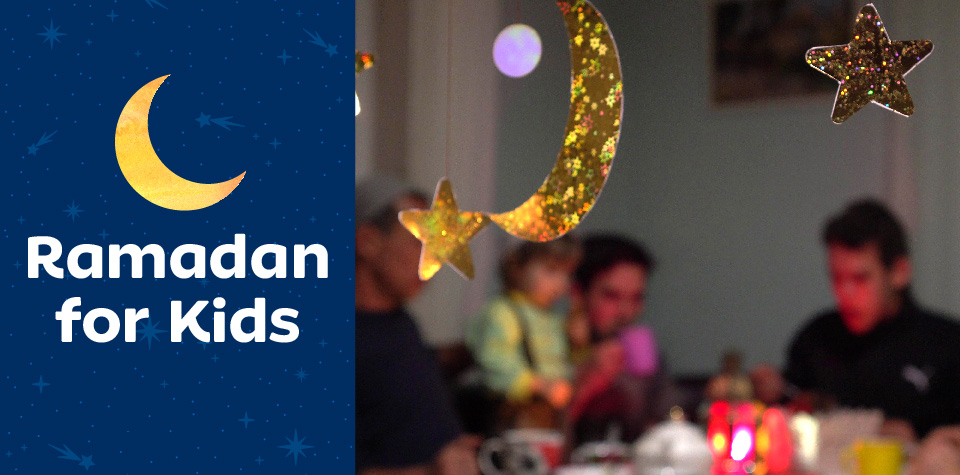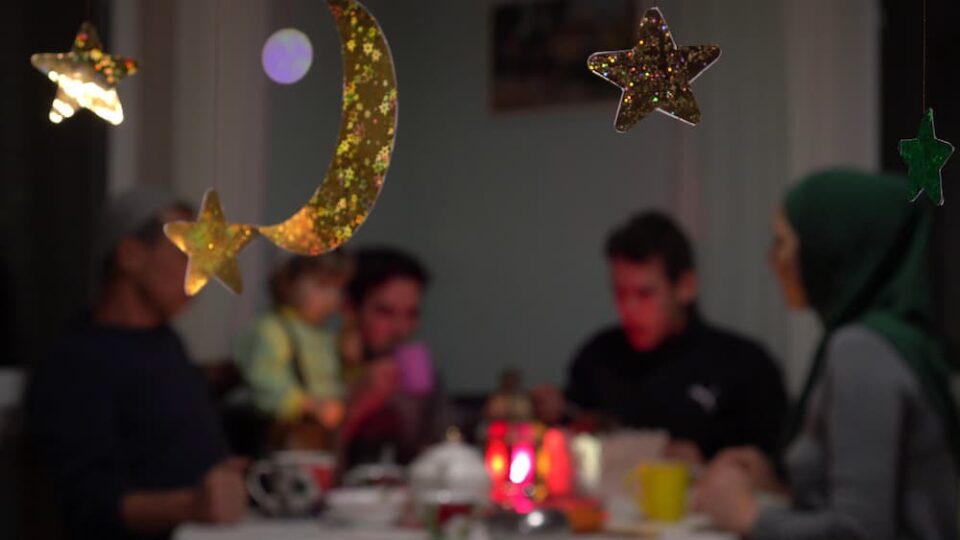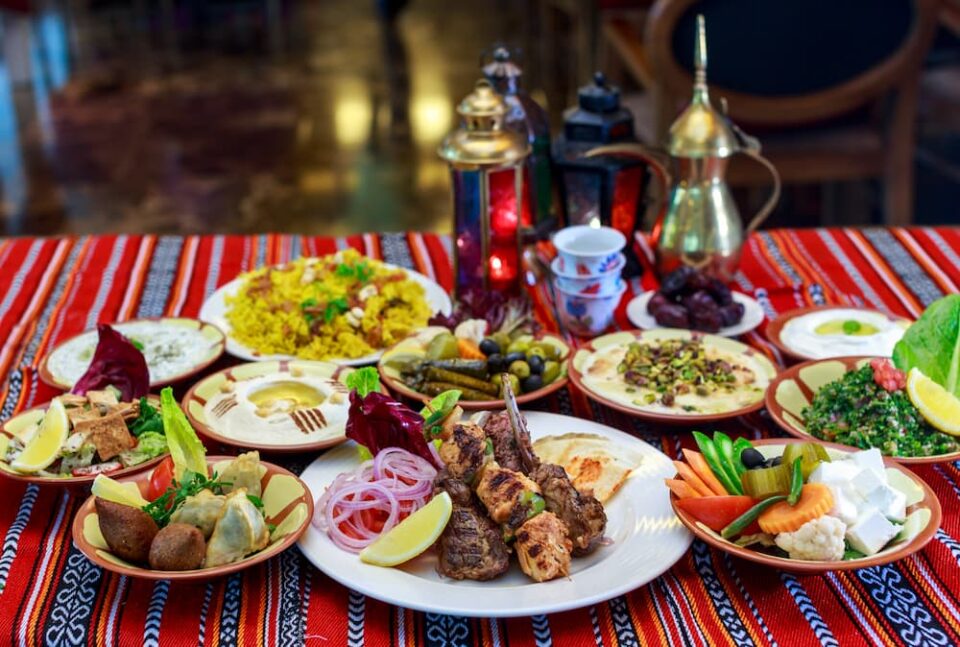
Ramadan Explained: Facts & Activities for Kids
Ramadan mubarak (“blessed Ramadan”)! Every year you can hear greetings like this around the world as the Islamic holy month of Ramadan begins. Around 1.8 billion people celebrate Ramadan, making it one of the most important months of the year in many parts of the world.

Every year, Ramadan takes place in the ninth month of the Islamic calendar after the first crescent moon of the month appears. Muslims celebrate Ramadan because it’s believed to be the time when the Qu’ran, Islam’s holy book, was revealed to the Prophet Muhammad. Most families observe Ramadan with fasting, prayer, and charitable deeds. Children, sick people, the elderly, and pregnant women are allowed to skip fasting.
Because fasting Muslims don’t eat or drink between sunrise and sunset during Ramadan, those moments end up anchoring people’s schedules. Most families get up early to enjoy suhoor, a pre-dawn meal that will be the last thing they eat until sunset. Then, once the sun is down, they gather for a large meal called iftar, which sometimes contains many courses. Iftar is a chance for communal gathering as well—many people visit family and friends to share the meal together.
6 Interesting Facts about Ramadan
Ramadan has been around since the seventh century and is a global holiday. There’s a lot to understand about it! Here are six interesting facts to get your family started:
- The Islamic calendar is lunar, not solar like the Gregorian calendar used in the U.S. and many other countries. That means that Ramadan starts on a different date on the Gregorian calendar each year, because the calendars don’t line up exactly. It can also happen any time of year, because the lunar calendar doesn’t sync up perfectly with the seasons.
- People who celebrate Ramadan do not eat or drink anything between the first light of dawn and the moment the sun sets. Fasting is meant to remind Muslims of people who don’t have enough to eat and spur them toward doing good deeds.
- During Ramadan, Muslims pledge not to tell a lie, gossip, or be greedy. Many people take advantage of the spiritual focus of Ramadan to break bad habits or read the entire Qu’ran.
- Muslims also celebrate Laylat al-Qadr, the “Night of Power,” during Ramadan. This night marks the moment when the Qu’ran was first revealed to the Prophet Muhammad. The exact night of the month when this took place isn’t known for sure, but most Muslims celebrate it on either the 23rd or the 27th night of Ramadan.
- At the end of Ramadan comes the large and joyous celebration of Eid al-Fitr, “the Festival of Breaking the Fast,” which lasts for three days. On the first day, everyone puts on new clothes for a visit to the mosque. People also decorate their homes, and many places hold outdoor feasts.
- Not everyone celebrates Ramadan the same way. In Cairo, lanterns are everywhere during the holy month—from old-fashioned handmade metal ones lit by candles to brand-new plastic ones that change with yearly fashions. In Indonesia, people prepare for the holy month with padusan, special cleansing baths often taken in springs. And in Turkey, drummers wake people for the morning meal by roaming the streets playing loudly.

Activities to Celebrate Ramadan with Your Family
If you don’t celebrate Ramadan but would like to get in the spirit, here are a few things you can do as a family:
- Eat dinner after the sun sets. Typical dinner items in many Muslim homes include dates, fruit salad, kabobs and rooh afza (a sweet syrup that can be added to milk or water).
- Volunteer, give to charities, and be kind to others, which are some of the key activities of Ramadan.
- Decorate the house for Ramadan. You can create crescent moons or stars out of paper, or make your own fanoos (also called a Ramadan lantern).
- Bake treats! Try a batch of delicious kahk cookies, which are a traditional treat on Eid al-Fitr.
- Mark the days with a calendar. Some Muslim families create calendars on which they keep track of their good deeds during Ramadan—and which contain little boxes filled with treats to open every day!
- Make time to visit family and friends. During Ramadan, many Muslims make an extra effort to visit loved ones.
Discover the World from the Comfort of Home
Ramadan is one of many amazing holidays celebrated around the world. If your kids enjoyed learning about it, they might be growing into young world travelers. You can keep feeding their passion for exploration with Little Passports’ award-winning World Edition subscription box. Every month, kids will take a playful learning journey to a new country through exciting stories, hands-on activities, fun souvenirs, and more. Watch them track their journey month by month on their world map, and watch their curiosity about the world we share keep growing.
